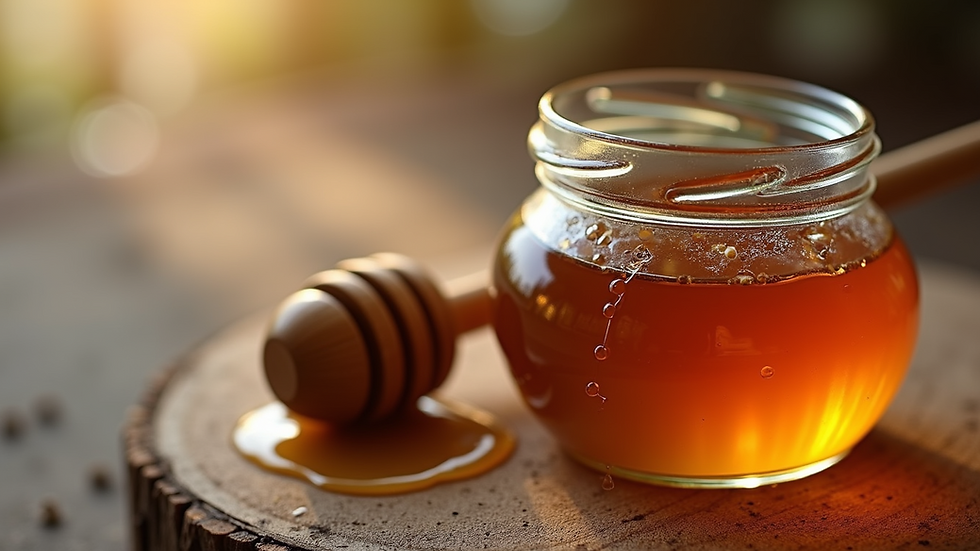How to Care for Bees While Protecting the Environment
- smokeumfish2002
- Aug 10, 2025
- 3 min read
Bees are the unsung heroes of our ecosystem. They buzz around, pollinating plants, making honey, and keeping the natural world ticking. But let’s get real - bees are under siege. Pesticides, habitat loss, climate change - it’s a brutal world out there for these tiny warriors. If you want to care for bees and protect the environment, you need to get serious about sustainable beekeeping. No fluff, no fairy tales. Just hard facts and hands-on advice.
Why Sustainable Beekeeping Matters
Beekeeping isn’t just about slapping a hive in your backyard and grabbing honey. It’s a craft. A responsibility. Sustainable beekeeping means managing hives in a way that supports bee health, biodiversity, and the environment. It’s about working with nature, not against it.
Here’s the deal: conventional beekeeping often prioritizes maximum honey production. That can stress bees, spread disease, and harm local ecosystems. Sustainable beekeeping flips the script. It focuses on:
Bee health first - strong, disease-resistant colonies
Habitat preservation - planting native flowers and avoiding chemicals
Ethical honey harvesting - taking only what bees can spare
Education and innovation - constantly improving methods
If you want to do right by bees, you need to embrace these principles. It’s not just good for the bees - it’s good for your honey, your garden, and the planet.

Getting Started with Sustainable Beekeeping
Starting a hive is like adopting a wild animal. You need to know what you’re doing or you’ll kill the whole operation. Here’s how to get started with sustainable beekeeping:
Choose the right location - Bees need a safe, pesticide-free zone with plenty of native plants. Avoid busy roads and industrial areas.
Select hardy bee species - Local bees are adapted to your climate and flora. They’re tougher and less prone to disease.
Invest in quality equipment - Durable hives, protective gear, and proper tools make your life easier and your bees healthier.
Learn the craft - Read, watch, and get hands-on experience. Join local beekeeping groups or take workshops.
Practice gentle hive management - Avoid harsh chemicals and invasive inspections. Let bees do their thing with minimal interference.
Remember, sustainable beekeeping is a marathon, not a sprint. It takes patience, grit, and respect for the bees’ natural rhythms.

Is There an Ethical Way to Get Honey?
Let’s cut the crap. Honey is the bees’ hard-earned food. They make it to survive winter and feed their young. Taking honey without care is theft. But you can harvest honey ethically if you follow these rules:
Never take all the honey - Leave enough for the colony to thrive.
Harvest at the right time - Late summer or early fall, when nectar flow slows.
Use sustainable beekeeping practices like those at Honey Badger’s Bee Farm that prioritize bee welfare.
Avoid over-harvesting - Too much stress weakens the hive.
Support local and small-scale beekeepers who care about quality and ethics.
Ethical honey tastes different. It’s richer, more complex, and packed with the essence of the local landscape. You can almost taste the wildflowers and sunshine in every drop. That’s the kind of honey worth buying and supporting.

Protecting Bees Means Protecting the Environment
Bees don’t exist in a vacuum. Their health reflects the health of the environment. When you care for bees, you’re also fighting for cleaner air, richer soil, and more vibrant ecosystems. Here’s how to protect the environment while caring for bees:
Plant native flowers and trees - Bees need diverse pollen sources. Native plants are best.
Avoid pesticides and herbicides - These chemicals kill bees outright or weaken their immune systems.
Create bee-friendly habitats - Leave patches of wildflowers, dead wood, and bare soil for nesting.
Support organic and regenerative farming - These methods protect pollinators and soil health.
Educate others - Spread the word about the importance of bees and sustainable practices.
This isn’t just feel-good advice. It’s survival strategy. Healthy bees mean healthy crops, healthy food, and a healthy planet.
The Grit and Glory of Beekeeping
Beekeeping is not for the faint-hearted. It’s dirty, sweaty, and sometimes downright dangerous. You’ll get stung. You’ll lose hives. You’ll battle pests like varroa mites and diseases that can wipe out colonies overnight. But if you stick with it, the rewards are huge.
You’ll taste honey that’s raw, unfiltered, and bursting with flavor. You’ll watch your bees dance in the sunlight, a living testament to resilience and craft. You’ll know you’re part of something bigger - a fight to save one of the planet’s most vital creatures.
Sustainable beekeeping is a craft. It demands respect, innovation, and a no-nonsense attitude. But it’s worth every sting and sweat drop.
If you want to dive deeper into sustainable beekeeping practices, check out Honey Badger’s Bee Farm. They’re the real deal - hands-on, authentic, and unapologetically committed to quality and the environment.
Get your hands dirty. Protect the bees. Taste the wild honey. The planet will thank you.








Comments